You're probably wondering about the science behind every single button on a webpage that leads to different functions. A simple click can unravel so much on a website and that is too targeted to reach your intention. The marvel behind this is the expertise of a back-end developer.
The back-end developer role is in significant demand, especially in this era where no one lives without digital devices and applications. Their importance in web development is earth-shaking, becoming well-paying jobs in countless companies like Microsoft and Facebook. Statistics have shown that 65% of recruiters foresee hiring a minimum of 11 developers in 2023.
And this rise in demand is because businesses can't score well in the internet era without a team of professional back-end developers - and they should have competent knowledge of programming languages, tools, APIs, algorithms, databases, security, and many others.
This guide is all you need to know to have a clear understanding of the back-end developers' job scope, required skill sets, and qualifications. By the end of this post, you will learn the ways to find extraordinary back-end developers to help grow your web applications into powerful weapons in this ever-competing world.
Let's get started.
What Is A Backend Developer?
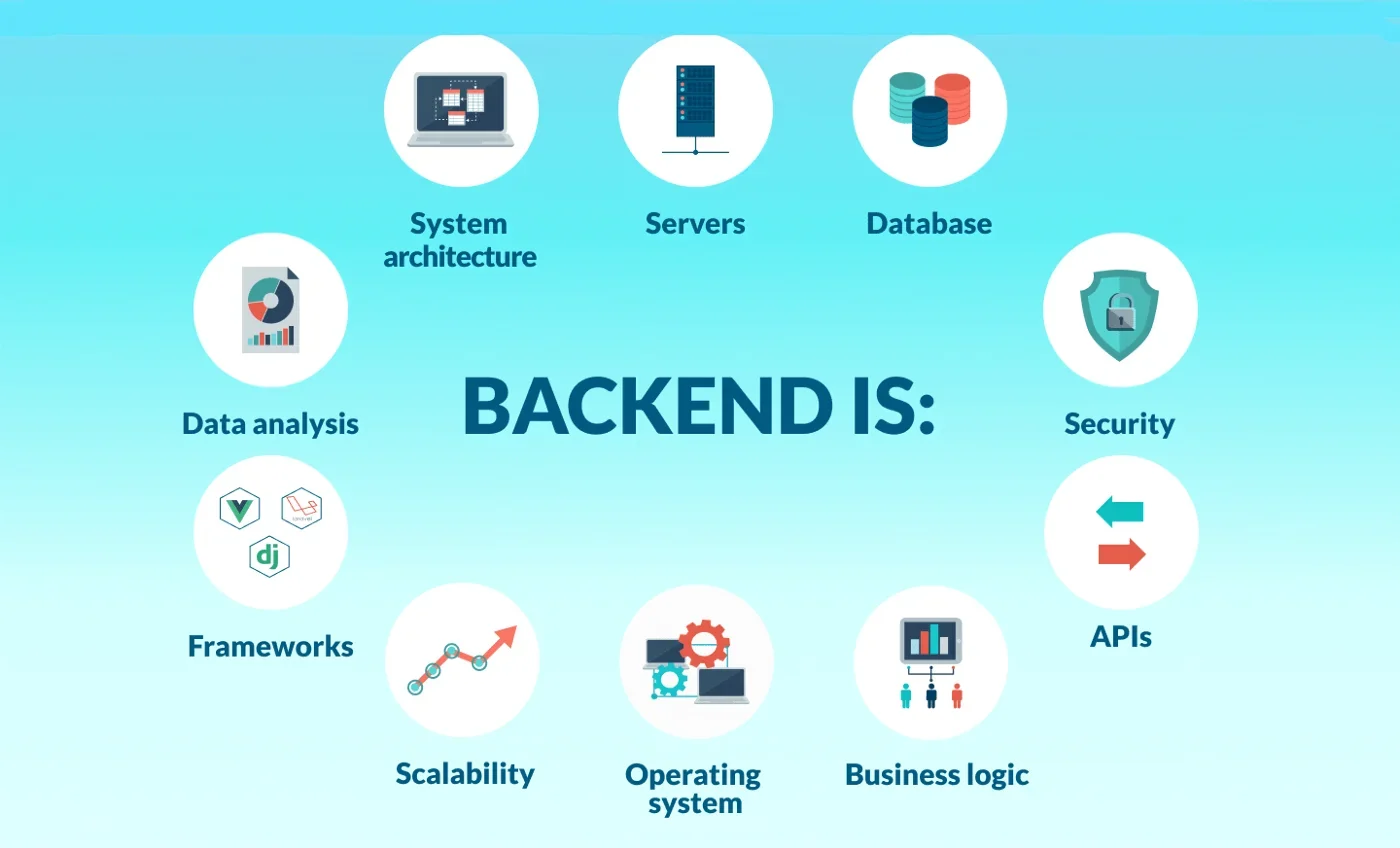
A back-end developer is in charge of almost everything behind the scene so the front-end can perform seamlessly. These backbones of web development work jointly with front-end developers to build and optimize practicable web applications with easy-to-use user interfaces.
None of these developers work alone. While the importance of front-end languages is vital in ensuring an easy application programming interface for uncomplicated interactions on the page, we cannot ignore the fact that back-end developers give the website life using server-side coding.
Back-end developers build, maintain, optimize, test, debug, and support the whole website behind the curtain. This almighty squad:
- Codes logically
- Manage databases in perfect order
- Oversees the entire back-end process
- Integrates data, applications, and APIs smoothly
It could be as easy as just managing the data displayed on the webpage, like company information, products and categories, and website policies. At the same time, it can be challenging to set up unique algorithms using machine learning.
Think of Amazon, the largest e-commerce company in the world today. It shows you millions of products nicely grouped under different categories. You can check the inventory available, so you know how much time is left for you to shop for alternatives before you check out slowly.
On top of that, Amazon personalizes recommendations for users based on their interests. It includes the items a user purchased, rated, put into their wishlist, and told Amazon he owned.
From this giant eCommerce store, we can see how much effort the software developers have put in to give a comfortable shopping experience to users. It is easier and faster to look up goods, hence able to retain current users and attract new buyers.
Definitely what every company wants for their company site. And we at Aloa can help you achieve all these. We know best that hiring an all-rounded back-end developer isn't an easy task. That is why we have a vigorous vetting process in building a pool of excellent back-end developers to manage your online projects according to your development needs.
In the next section, we will give a deeper insight into what a back-end developer does so you know to what extent they benefit you.
What Does A Back-End Developer Do?
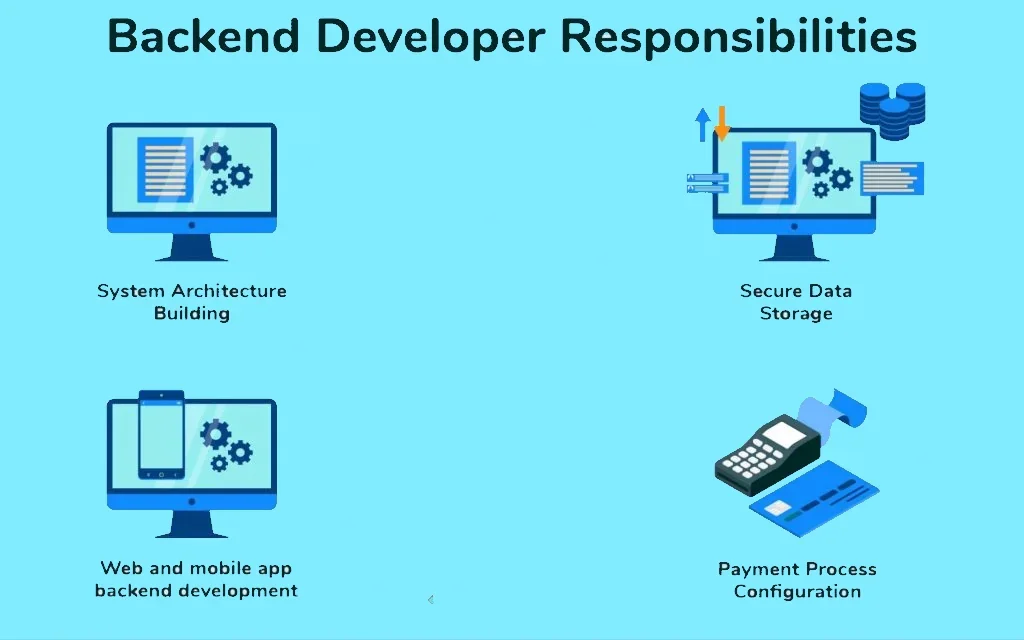
Let’s take a look at some of the major responsibilities of a back-end developer.
I. Develop And Maintain Websites
Back-end developers are responsible for building complex yet easy-to-comprehend back-end systems and transforming them into functional websites. They need to utilize different frameworks and tools. Knowing the compatibility of different platforms and programming languages like Java, Python, PHP, CSS, HTML, Ruby, Javascript, and SQL is a must.
When it comes to website maintenance, back-end developers ensure that your website is up-to-date and performing well. They update website content regularly, as well as make sure the code is working and is updated with regular releases.
II. Code With Quality
Good practices in coding are vital in developing high-quality web applications, besides making the entire process efficient and easy. Back-end developers must:
- Identify issues
- Discover possible solutions
- Record significant changes
- Plan for the future
Thinking through in advance is another aspect to consider when coding since it can prevent a project from sticking at a dead spot. It also allows your online project to proceed further without needing to alter your entire planning. Otherwise, you'll spend more time and money getting the final product ready, which won’t be in your favor.
III. Optimize User Experience
Providing a secure and customized browsing experience will aid in building a professional brand image in the users' minds. It includes
- Enhancing the ease of use
- Incorporating user feedback into the website
- Ensuring website design and function consistency
- Using correct languages and frameworks for smooth browsing
Qualified backend developers will conduct quality assurance periodically to test cross-device functionality, display, usability, and accessibility.
IV. Examine Website Performance
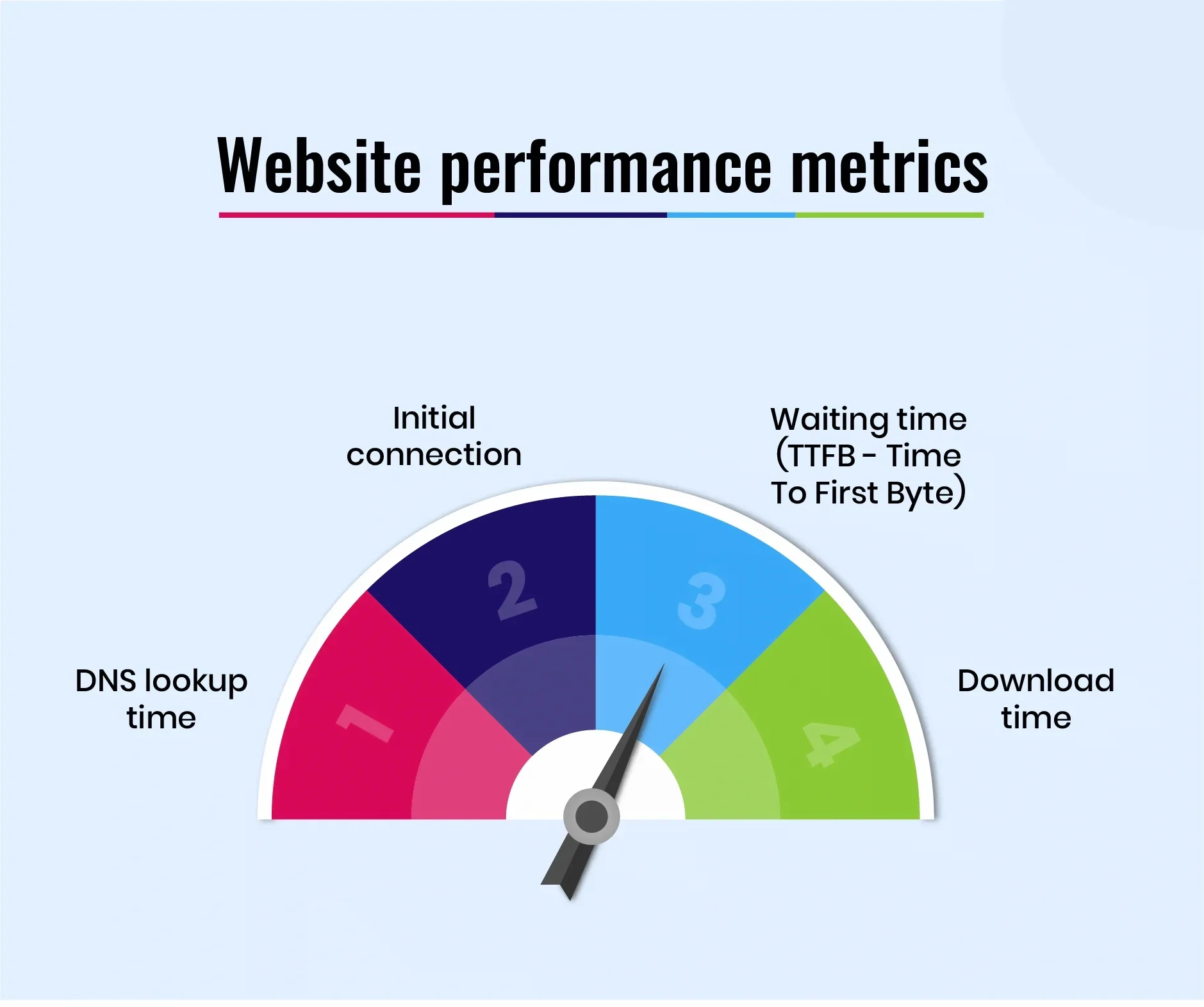
Keeping your website updated with the latest information is crucial. Yet, it is useless if your website can’t cope with the traffic and shows poor performance in terms of efficiency and speed. Based on research, 2 out of every 3 customers will bounce or leave your website after 6 seconds of load time. In fact, most online users expect a speedy load time of 2 seconds.
Therefore, back-end developers must work on eliminating confusion and frustration by improving the website response time. They should be able to boost your website performance by:
- Choosing a better host
- Reducing the number of plugins
- Optimizing the CMS database and image sizes
V. Debug
No website is perfect from the start. Even the best eCommerce site today requires continuous troubleshooting and resolutions over time. And that's where back-end developers come into play.
Whether a fatal error or a feature error, back-end developers must know how to debug efficiently and effectively using various tools. They should be able to diagnose an error condition as soon as possible and prevent more severe crashes in the future.
VI. Technical Support
Another significant role of a back-end full-stack developer is the technical support for the website backend. They must maintain the databases, be it data storage, retrieval, or organization.
Moreover, back-end developers must know how to handle backups to safely archive your website information, as well as protect your web applications from cyberattacks by implementing robust security and firewalls.
Aloa is the name you can trust if you need assistance hiring competent remote developers for all-year technical support. Our top-notch back-end developers and software engineers undergo a comprehensive screening process and with constant refresher courses to keep them updated with the latest trends, you can get a first-rate website development experience.
What Tools Do Backend Developers Use?
Let's discover the main tools back-end developers use for web development. For those who have previously recruited back-end developers, this may seem obvious, but if you have little to no technical experience, it's important to be familiar with these tools as this will help you identify the right candidate that best suits your project development needs.
A. Programming Languages
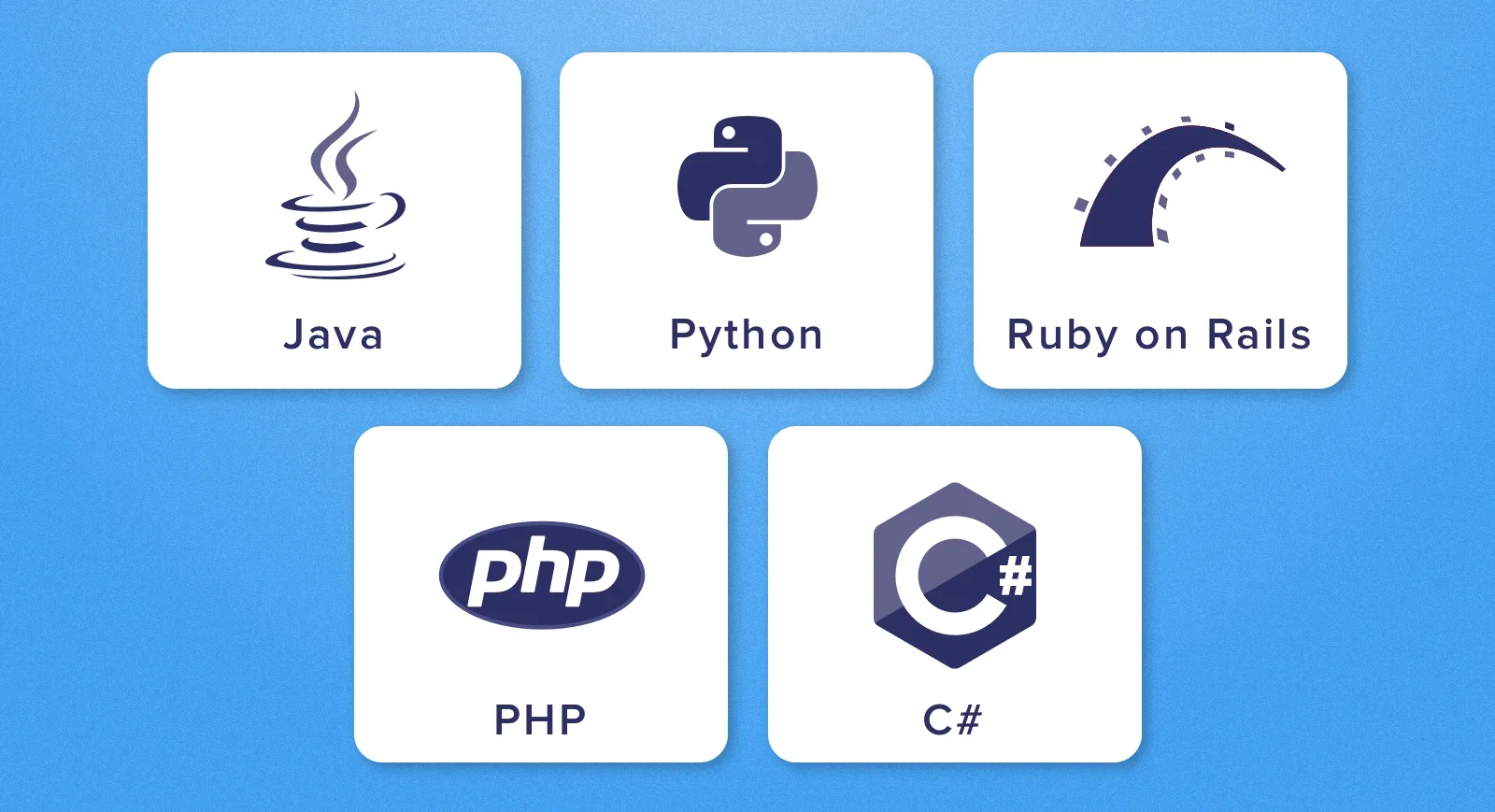
Using suitable programming languages will ensure cross-platform and cross-device compatibility. You will also get better integrations, more security, and higher versatility. Some widely used open-source and closed-source back-end programming languages include:
- PHP
- Java
- Ruby
- Python
- JavaScript
B. Frameworks
Frameworks design the website's architecture and give backend developers more efficiency, scalability, security, and extensibility. Your website data will get better storage, processing, and queries on the server side. The famous frameworks used by back-end web developers are:
- Spring
- Meteor
- Django
- Laravel
- Node.js
- Angular
- Ruby on Rails
C. Databases
All websites have data, hence need a unified database to store them. Backend developers must know how to make relational connections between the database and the website. Examples of popular databases are:
- Oracle
- MySQL
- MongoDB
- Microsoft SQL Server
D. Servers
A server stores and organizes data so the client-side web page can perform well via sending and receiving information from the origin to the destination. The commonly used servers include:
- NGINX
- Apache
- Lighttpd
- Microsoft IIS
Apart from all these, backend developers must also know about the Microsoft Azure Cloud Platform. For this, they can even leverage resources like Microsoft AZ-900 Dumps and get the necessary certifications required for their job.
What Are The Required Skills And Qualifications For A Backend Developer?
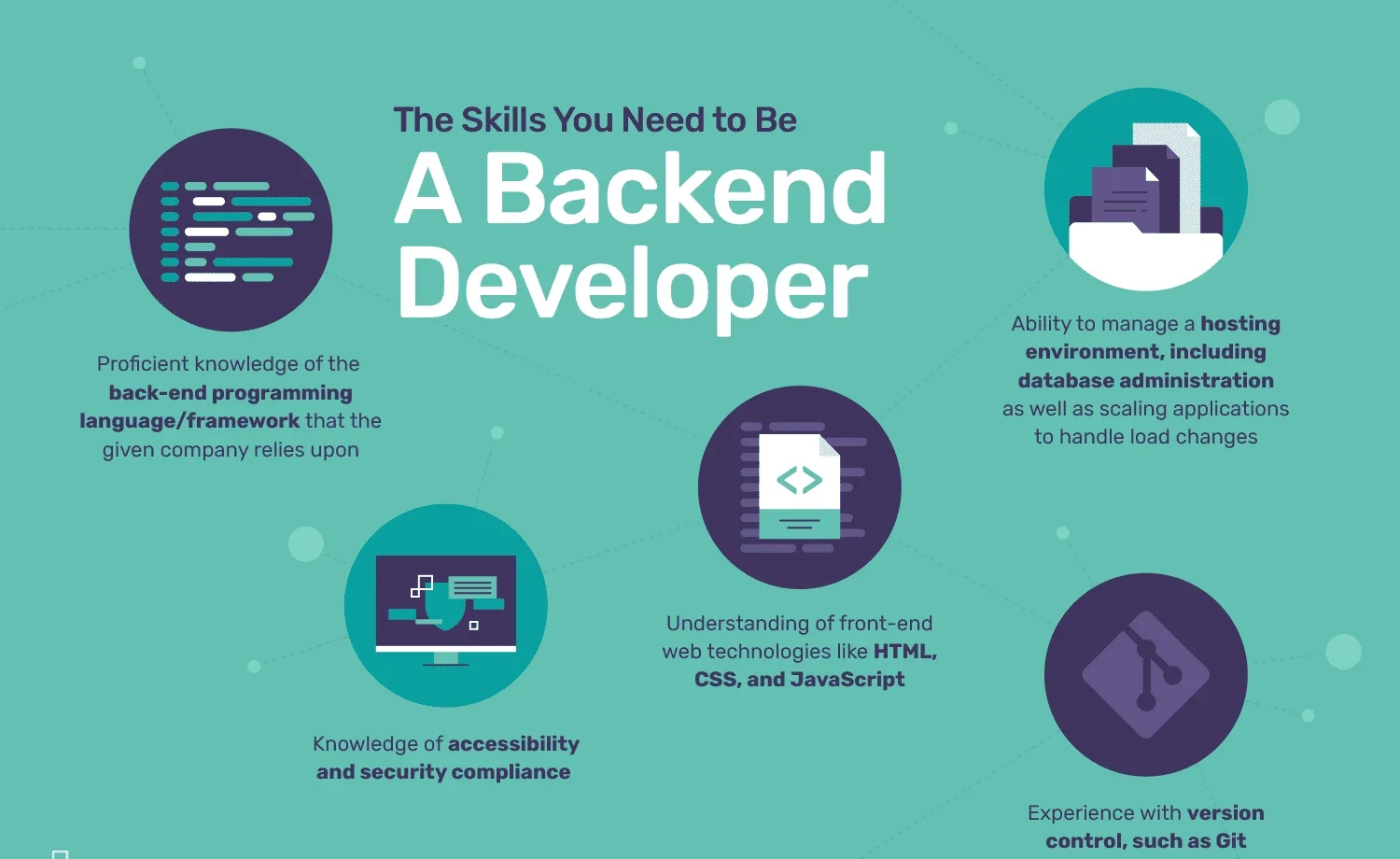
The back-end development career well suits those with a passion for technology. Though the market offers many lucrative back-end developer jobs, these developers must also own specific crucial skills and qualifications to catch these golden opportunities. Let's dive deep and take a look at some must-have back-end developer skills.
1. Data Structures and Algorithms
The data structure is the method of storing and organizing data for a web application. Developers must learn several skills to master data structures. For instance:
- Arrays
- Stacks
- Graphs
- Queues
- Linked Lists
- Hash Tables
On the other hand, having in-depth algorithms knowledge will increase your website's scalability and performance, as well as track the users' behavior and responses. Those who learn the following will have a better command of website algorithms:
- Bubble Sort
- Insertion Sort
- Binary Search
- Selection Sort
- Databases and Cache
2. API-Related Knowledge
A proficient back-end developer must possess API knowledge since it is the foundation to run the entire Internet by enabling communication between devices. An excellent API consists of multiple formats for varying languages, proper documentation, and robust developer communities. API consists of 3 elements:
- Tools: The crucial components to building new programs
- Procedures/Routines: Specific functions that a program executes
- Protocols: The format for applications to communicate and share data
With APIs, a designed function can perform smoothly via shared data and the implementation of pre-defined processes. In this case, all development team members must have mutual expectations before building APIs, like deliverables, project timelines, and functionality.
3. Software Development Certifications
To acquire the relevant certifications, the back-end developers must go through the training process that hones in on a specific niche. It proves that this developer has spent the required credit hours to learn the skills and languages and is ready to use them in the professional field. And having certifications make a back-end developer more in demand.
Different software development certifications will cover varying skills, such as:
- Algorithms
- Databases
- Web security
- Data structures
- Hybrid applications
This aspect makes Aloa a better choice since we constantly ensure that our developers have all the relevant certifications. We manage a software development team with outstanding skills and knowledge of back-end development. Our developers have proven expertise and experience in building exceptional Android and iOS projects with reduced costs.
4. C And C++ Certifications
C certification is a beginner-level qualification, while C++ is a higher-level qualification on top of the former's foundation. Backend developers frequently use these server-side languages as they can be easily adapted to numerous platforms.
Back-end developers who've gained their C++ certifications have a deep understanding of computers and software designs. They can also better handle object-oriented programming with a great deal of coding knowledge.
These certifications are required by almost all IT companies. By hiring C++-certified developers, your company can build many exciting projects, like websites, computer games, and even virtual reality equipment.
5. Version Controls
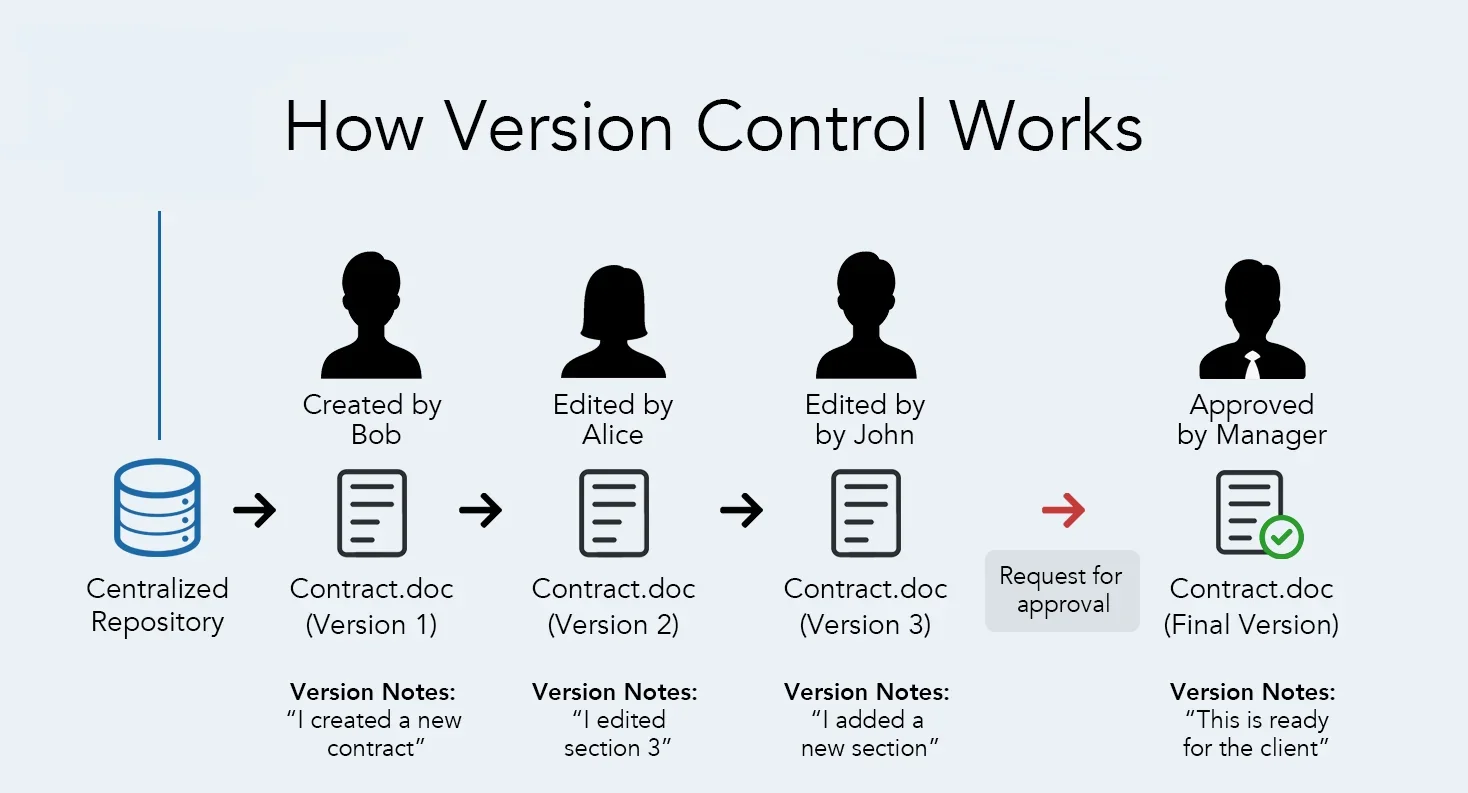
Storing all coding versions in the repositories allows your developers to retrieve them later when in need. It helps
- Track changes
- Resolve issues
- Avoid conflicting work
- Protect the source code
Moreover, developers will have improved communication and collaboration for a simpler software development process. That is why a professional back-end developer must know how to manage a software version control system like GitHub.
6. Communication Skills
No developer can achieve anything alone. Developing a high-tech back-end project requires back-end developers to communicate effectively with other members. Only then will they know how to enhance the system by getting both positive and negative feedback.
So back-end developers must possess good communication skills to be likable team players and to achieve better development results.
7. Analytical Thinking Skills
Backend development is not just about coding. It requires one to plan in advance, discover problems, find possible solutions, and finally resolve them to accomplish long-term usability.
Being a back-end developer also requires one to analyze comprehensively and think from many different perspectives. They should also be creative and innovative to connect one application to another, as well as build unique coding systems.
Best Practices For Hiring The Right Back-End Developer For Your Company
We'll share valuable best practices to help you hire the best back-end developers matching your needs.
I. Know The Estimated Salary Payout
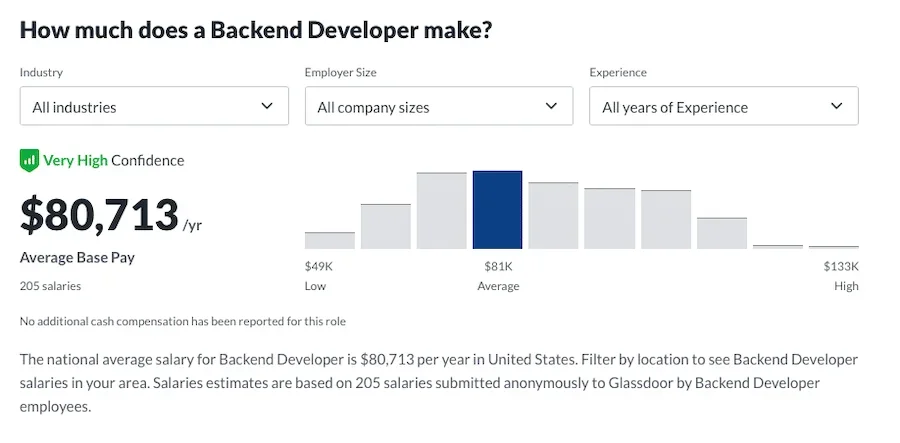
The average salary for a backend developer with a degree in computer sciences is $80,713, according to Glassdoor. Knowing the salary range helps in aligning the candidate's expectations with the industry average and enables you to hire the right prospect without overpaying. Even yet, if you don't know how to go about it, it could be challenging to find the ideal back-end engineers for your business despite the high back-end developer salaries.
II. Know Your Company's Requirements
You must first acknowledge your company's goal, preferences, and other requirements. Ask yourself the following questions and pen down all the details:
- APIs requirements: What are the devices that you need linkage to?
- Other measurements: Security, database management, and site optimization
- Type of web applications: Are you looking to hire a back-end developer for building websites, mobile applications, or computer games?
III. Review Their Portfolios
A programming portfolio helps determine the developer's skills and abilities. You'll know their proficiency in different programming languages, their effort in application development, and their problem-solving skills using various tools.
You can also look at their past projects’ source codes to get an idea about their coding fundamentals and methodology. It will also enable you to have a better discussion with properly formulated questions based on their experience.
IV. Evaluate Their Technical Skills
The perfect candidate for your company's back-end developer role must have most of these below-mentioned technical skills and expertise:
- Proficient skills in managing version control systems like CVS or GIT
- Expert knowledge in using different API architectural styles like REST
- Solid expertise in handling databases and servers like MySQL and Apache
- Sufficient experience in utilizing frameworks like Ruby, Laravel, and Django
- Exceptional technical ability in working with data security and compliance tools
- Adequate applied knowledge in writing at least one programming language, like PHP, Java, or C++
V. Assess Their Soft Skills
Recruitment managers might often overlook the importance of soft personal skills when hiring a back-end developer. But these skills nonetheless play a significant role in building a solid website development team:
- Exceptional eye for detail
- Top-notch strategic thinking
- Excellent communication skills
- Superior creativity and innovation
- Outstanding analytical capabilities
VI. Ask Questions
An interview is not just about self-introduction and portfolios. Asking the right questions will also let you identify the best candidates by appraising their confidence, knowledge, and experience.
Here are examples of powerful questions to understand your interviewee better.
VI.I For Junior Back-End Developers:
- How do you ensure quality in your coding?
- How would you find slow queries in MySQL?
- What are your step-by-step actions in troubleshooting your code?
- What is an application cache? How is it used, and where do you store it?
VI.II For Mid To Senior-Level Back-End Developers:
- What is the API gateway pattern?
- How do you find a bug and debug an application?
- What are the design constraints in the RESTful API?
- How do you keep yourself updated with the technology trend?
Conclusion
Back-end developers are one of the most sought-after commodities in the development world. Finding a back-end developer is easy but finding a proficient and skilled back-end developer is difficult.
Hiring a skillful and experienced back-end developer could be challenging at first, but not anymore with Aloa. We have a team of highly competent programmers to save you from the hassles of the complicated recruitment process so that you can establish your multi-functional online applications in no time.
Do not hesitate to reach out to us at [email protected] for all your back-end development needs.

